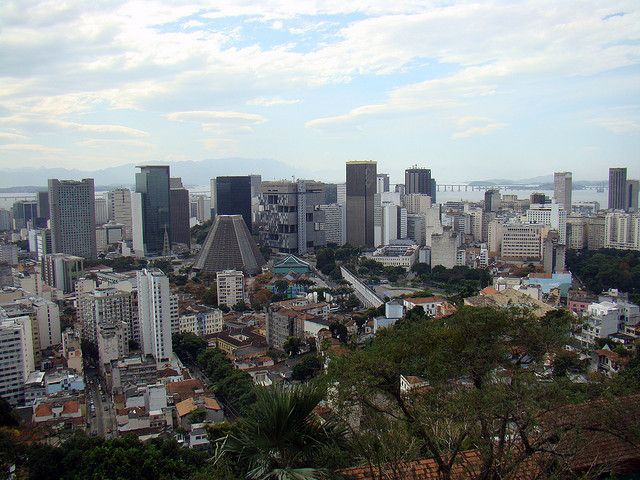There are 100 days left until the Rio 2012 Earth Summit, one of this year’s most important international conferences that no one is talking about.
Also called Rio+20, and officially known as the United Nations Conference on Sustainable Development, the summit tackles environmental issues on a global scale. Unlike official climate change conferences like COP 17, which just passed in Durban, South Africa, the Rio summit is intended to be an event for all stakeholders to promote a vigorous climate change agenda.
Once a decade since 1972 (except in 1982, for some reason), the earth summit has served as a gathering of major non-governmental organizations to call for environmental action. In 1992, at the last summit held in Rio, more than 170 countries and 2,400 NGO representatives convened to discuss issues of biodiversity, deforestation, public transportation, oceans and other environmental topics. That event is probably best known for producing Agenda 21, a document that has gotten some recent attention for, of all reasons, threatening property rights in the United States. Agenda 21 set forward a plan to avoid environmental degradation by protecting resources and settling the tab between carbon-intensive “global north” countries and the considerably greener “global south.”
As we head toward this year’s Rio events, there are several reasons for the urban affairs community to pay attention. Unlike past conferences, this one is focused on urbanization and its consequences. While forests and oceans will be on the agenda, so will housing, transportation, infrastructure and urban economies. While past conferences often put environmental and economic priorities in opposition, Rio+20 is squarely intent on promoting the green economy. Also, this is an opportunity for people outside the official establishment to call for environmental action. This means that mayors and urban policy NGOs have a chance to put forward their ideas for more sustainable development. Some larger NGOs, such as the Natural Resources Defense Council, have drafted serious and thorough propositions that the whole urban affairs community should think about. In Philadelphia, the city is using the summit as an opportunity to exchange ideas about sustainable infrastructure and housing with the city of Rio.
So if this is important stuff, why aren’t more people paying attention? Because, cynically, many of us believe that these summits do not result in real change. The environmental treaties that get signed are so watered down that they sound meaningless, and many of the goals they present are never met. It’s hard to see the effect of international summitry on your neighborhood block, so the time and money spent on these big events can seem like a waste of effort. Why try to change the world from the top down when you are working from the bottom up? There are both cynical and optimistic ways of looking at the value of these environmental summits. On the other hand, these international treaties do something. When George H. W. Bush signed Agenda 21, the country pledged $1.4 billion for climate change research and $150 million toward forest preservation. It’s hard to shrug when more than 150 countries take similar actions.
Next American City will provide a dispatch on Rio 2012 every other week until the summit at the end of June. We look forward to diving into the history of these summits, interviewing people involved in this year’s event and helping ensure it is relevant to urban affairs work done here in the United States.

Diana Lind is the former executive director and editor in chief of Next City.






_600_350_80_s_c1.jpg)









